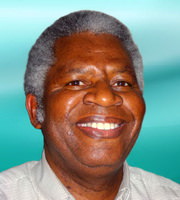
by Jacqueline De Burca
A Guide To The Tridosha Concept
For over 5000 years, the Ayurvedic system has offered a body of wisdom to help people to achieve balance and vitality, whilst realising their full potential. Practitioners of the ancient holistic system of Ayurvedic medicine view each human as an individual and diagnosis is carried out using all of the five senses. Ayurveda considers that the physical and mental aspects, as well as the personality combine to make a unit, of which all aspects can influence the others. Treatment can include the use of herbs, yoga, nutrition, panchakarma cleansing, Vedic astrology and acupressure massage.
Native to the subcontinent of India, this traditional medicine system’s name Ayurveda is derived from the Sanskrit word ?yurveda, which means life-knowledge. There are texts on Ayurveda which date back to as early as the 3rd or 4th century B.C. However today in India the word is used to cover a range of traditional medicine, which means that there are numerous branches of Ayurveda now. Historically the system has enumerated the bodily substances into a framework of the five great elements (earth, water, fire, air and aether) which also interact with the seven tissues (blood, plasma, flesh, bone, marrow, adipose and reproductive).
In Hinduism it is believed that humans and all of creation are made up of these five elements, which dissolve back into nature upon death, balancing nature’s cycle. However whilst living humans are affected by the five elements and Ayurveda aims to balance the three elemental substances, known as doshas. Known as the tridosha concept, tt is believed that each human being is a unique combination of the doshas, which defines their character and temperament. Every human has a natural systems state, which is a natural combination of the doshas. In Ayurveda is it believed that humans can achieve balance by seeking more of the element/s that they lack, which can be done through care of their habits, environment and behaviour.
The three doshas are:
Vata – air and space = wind
Pitta – fire and water = bile
Kapha – water and earth = phlegm
These fundamental energies affect both our inner and outer environment, plus they govern structure, movement and transformation. Upon diagnosis an Ayurvedic practitioner provides guidelines to be applied on a daily and seasonal basis. These include specific seasonal and daily routines, proper use of our senses, diet and behaviour. Ayurveda teaches that health is a result of a finely tuned integration between our spirit, body, mind and environment.
Vata
If Vata is the predominant dosha a person tends to be light, thin, energetic and enthusiastic. Vata types can be visionaries, with wonderful imaginations but they can also get spaced out. On the positive side Vata has an abundance of creative energy, but needs to watch out for feeling uptight and anxious. Although Vata may have artistic talent, the mind can sometimes be restless. This can lead to over analysis and theorising. They can also have a tendency for over-indulgence in some of life’s pleasures.
Vata is required to mobilise the functioning of the nervous system, so this is why when there is too much Vata – an imbalance of Vata, that the person may tire easily due to over thinking, anxiety and worry. It also affects flatulence, windy humour, rheumatism and gout.
To Balance Vata
- Create a routine
- Listen to relaxing music
- Meditate if possible twice every day to calm your mind
- Your environment should have more earth tones and mild pastel shades
- Before going to bed, try to minimise watching TV, eating or heavy reading
- Oil your skin
To Avoid Excess Vata
- Avoid exposure to the cold
- Don’t eat too much dry, leftover or frozen food, or food that is bitter or astringent
- Avoid too much exercise
- Avoid suppressing your natural urges
- Don’t travel too much
Pitta
Those who have more of the Pitta dosha are often confident leaders. Their physique tends to be moderately strong, and they seem to walk with a sense of purpose. When they speak the voice is often strong, or even loud, and their speech is convincing. They are enthusiastic for knowledge, have a leaning towards being very focused and can have a razor sharp mind. Even when relatively balanced they can seem argumentative, but it is mixed with a sense of humour. However an excess of Pitta can make them irritable, fiery and snappy. Those with Pitta as the prevalent dosha can be organised perfectionists.
The energy principle of Pitta is to use the bile to direct digestion and metabolism. As heat is its main quality, those with Pitta can suffer from overheating, skin irritations, ulcers and heartburn.
To Balance Pitta
- Spend time in cooling environments
- Do gentle exercise that doesn’t overheat you
- Try to learn to go with the flow
- Eat cooling foods, cucumbers are excellent as are many vegetables and fruit
- Avoid oily foods
- Take deep breaths frequently, or do breathing exercies
- Do yoga asanas which are gentle
To Avoid Excess Pitta
- Don’t overexposure yourself to heat
- Avoid too much intellectual thinking
- Avoid alcohol
- Be careful of too much anger, fear or hate
- Do not exercise in the middle of the day
- Avoid antibiotics and ideally all drugs
Kapha
Kapha tends to have a broader frame and long limbs. They are compassionate and caring, often speaking in a slow, rhythmic manner. They are stable, patient people who don’t tend towards anger too easily – however if they are driven far enough then they don’t calm down very easily. Essentially full of love, loyal and kind-hearted, the Kapha is the dosha which is prone to gain weight easily. They take longer to learn but when they do the memory is strong. Also it may take then a while to reach a conclusion, but they make excellent logical analysts.
If there is an excess of Kapha then the person may feel lethargic and over-indulgent. As phlegm is the controlling body fluid, Kapha types are prone to excess weight, congestion and a sluggish digestion.
To Balance Kapha
- Walk for around 15 minutes after eating to aid digestion
- Be attentive to your food while eating, in other words be mindful
- Trigger your natural energy by going to a yoga class
- Breath deeply or do breathing exercises
- Do an invigorating daily self massage
To Avoid Excess Kapha
- Avoid eating too much meat, dairy, fried food, salt and sweets
- Don’t use sedatives or tranquilizers
- Avoid exposure to the cold
- Avoid doing little or nothing
- Don’t drink too much water
- Be careful about focusing too much on possessiveness, greed and doubts
To get the best out of Ayurveda, you should go to a qualified practitioner and then follow through on the recommendations based on your current balance of doshas. However, if you are curious, you can first try some quick online quizzes to find your balance:
http://doshaquiz.chopra.com/
http://www.pukkaherbs.com/Ayurveda/dosha-quiz
Image Credit: marketing-deluxe.at





























